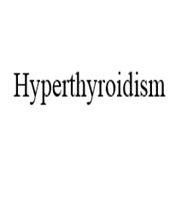Nowadays, throughout the world a majority of patients with Graves’ hyperthyroidism are treated with antithyroid drugs (ATDs) (1, 2); however, hyperthyroidism recurs in almost 20% - 70% of patients following discontinuation of medical treatment (3). The 2016 American Thyroid Association (3) and 2018 European Thyroid Association (4) guidelines have recommended that patients with recurrence of Graves’ hyperthyroidism, after the conventional 12 to 18-month ATD therapy, should undergo an ablation treatment with radioactive iodine (RAI) or thyroidectomy. Moreover, findings of the 2010 Cochrane review (5) underscoring the limited number of trials comparing ATD treatment < 12 months versus > 12 months, led to inclusion of continued long-term ATD therapy based only on patient preference being suggested in these guidelines (3, 4). Unfortunately, after both RAI and thyroidectomy, the hyperthyroid patient may often be faced by another disease i.e. hypothyroidism; in addition, RAI-treated patients may have a higher risk of death from solid cancers (6) and patients undergoing thyroidectomy may be prone to several morbidities and complications (3).
Over the past 15 years, a few studies (7-11) and two systematic review/meta-analyses (12, 13) have shown that long-term ATD treatment of patients with Graves’ hyperthyroidism, viz. with methimazole, is effective in the maintenance of euthyroidism for up to 15 years without additional adverse effects. Efficacy and safety of long-term ATD therapy have overall been documented in over 1600 children, adolescents, and adult patients with Graves’ disease (7-11, 14-16).
The highest remission rate of Graves’ hyperthyroidism occurs after long-term methimazole therapy; it has recently been reported that 84% of adults and 88% of adolescents with Graves’ disease attain cured 4 years after discontinuation of methimazole (17, 18).
We believe that recommendations for conventional ATD treatment for 12 - 18 months should be revised. Considering the effectiveness of long-term medical therapy along with a rarity of side effects with methimazole, physicians should treat patients with Graves’ hyperthyroidism for a minimum of 5 years, and if needed for many years to come. Further research should focus on the 16% of Graves’ patients who have a relapse of hyperthyroidism after discontinuation of long-term ATD therapy for detection of any factors related to the relapse.
